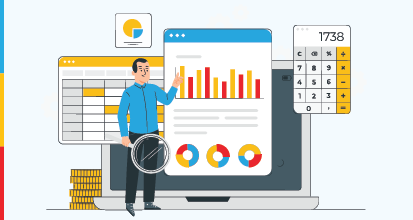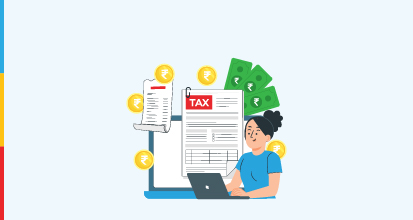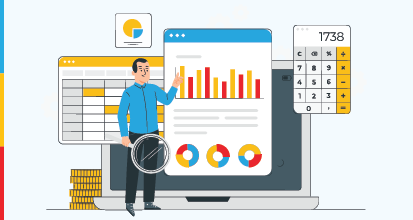Written by : Knowledge Centre Team
2025-11-10
3160 Views
14 minutes read
Share
Nearing retirement, it is crucial that we shift our focus towards ensuring financial stability and especially towards maximizing savings. In the absence of a fixed source of income, such as salary, it is our savings that play an essential role in helping us gain financial independence post-retirement. That being said, there are different pension plans and other smart saving plans that can help senior citizens maximize returns on their investment while earning significant tax-saving benefits.
Here are a few tips to help seniors make the best use of their retirement corpus while keeping their tax liability at a minimum:
Five-year Fixed Deposits (FDs) or Tax-Saving FDs provide wealth creation and tax-saving opportunities without any investment-related risk. Most financial banks offer a higher rate of interest to senior citizens. As the name suggests, five-year FDs have a lock-in period of five years (the maximum booking period of these FDs is ten years.) You cannot make any premature withdrawals before the completion of the lock-in period. Moreover, five-year Fixed Deposits provide tax deductions of up to 1.5 lakh on your contributions towards the scheme under Section 80C of the Income Tax Act 1961.
Senior Citizen Savings Scheme or SCSS is essentially a fixed income saving scheme, which offers exclusive benefits to senior citizens (age 60 years and above.) SCSS offers the Under SCSS; seniors can save up to ₹30 lakhs for a maximum period of 5 years, with an option to further extend the policy tenure by three years (on completion of the first five years). Investment into SCSS is eligible for tax deduction under Section 80C; however, the interest earned on the investment is subject to taxation as per the applicable tax rates for senior citizens. Regardless of this, SCSS offers the highest returns (post-taxation) among available fixed-income taxable investment instruments.
Our health usually deteriorates with age, as we become more vulnerable to all sorts of medical conditions. Post-retirement, thus, seniors need the financial protection of health insurance coverage against medical expenses, which are generally high for senior citizens. Moreover, the premium paid towards health insurance is eligible for tax deductions under Section 80D of the Income Tax Act 1961. Thus, senior citizens can avail themselves of tax savings of up to Rs 50,000 on the premiu paid towards their health plan.
An OTP has been sent to your mobile number

Sorry ! No records Found
Thank You for submitting the response, will get back with you.
MIS, or the post office monthly income scheme, is one of the best tax saving schemes for senior citizens. POMIS is a low-risk savings scheme that helps seniors avail of a steady and reliable monthly income to take care of their post-retirement lifestyle. At the same time, this scheme offers tax-saving benefits under Section 80C, along with other popular Post Office savings schemes for senior citizens including:
While individuals age between 18 and 65 years can invest in the National Pension Scheme (NPS), senior citizens have the option of extending the investment tenure until they reach 70 years of age. Another benefit of investing in NPS is that senior citizens can avail of an additional tax deduction of up to ₹ 50,000 on their contribution under Section 80TTB. Therefore, taking their overall tax deductions up to ₹ 2 lakh (under Section 80C and Section 80CCD).
Also Read - Income Tax Slab For Senior Citizens
There are various options for senior citizens to maximize their financial stability through low-risk investments. At the same time, these investments offer significant tax-saving benefits to the seniors to enjoy their life post-retirement without worrying much about tax implications.
Income tax in India is based on incremental slab rates. The rate of tax is higher on higher income. You can also avail deductions from your taxable income if you invest in eligible instruments like PPF, NPS, ELSS, ULIPs, etc. Starting AY 2026-27 you have two tax regimes – old and new. The old tax regime has all the deductions from gross total income, while the new tax regime offers a lower rate of tax. So, if you are not investing in tax-saving instruments you can file your tax as per the new tax regime.
You can avail additional tax savings under the following sections other than section 80C:
a) Section 80D: Health insurance premium payments for family and parents up to Rs 75,000
b) Section 80CCD(1B): Self-contribution to NPS Tier-I account above 10% of salary or 20% of income if self-employed up to Rs 50,000
c) Section 80E: Education loan interest paid through the year
d) Section 80EE: Home loan interest paid up to Rs 50,000
e) Section 80G: Charitable contributions to non-profit organisations registered under section 12A up to 50% or 100% of the contribution
f) Section 24B: Interest paid on home loan
You have many tax-saving investment options. You can consider the following popular tax-saving schemes to save tax:
a) Term life insurance plan
b) Health and critical illness insurance plan
c) Life insurance plans such as endowment and moneyback plans
d) Pension plans from life insurance companies
e) Public Provident Fund (PPF)
f) National Pension System Tier-I account (NPS)
g) Employee Provident Fund (EPF)
h) Unit Linked Insurance Plans (ULIPs)
i) Equity Linked Savings Scheme (ELSS)
j) Senior Citizen Savings Scheme
k) Sukanya Samriddhi Yojana
l) 5-Year Tax Saving Fixed Deposits
m) National Savings Certificate (NSC)
Deduction of Rs 1.5 or 2 Lakhs under section 80C is available when you make investments or spend money under the heads mentioned in the Chapter VI A of the Income Tax Act, 1961. All tax-saving investments like PPF, NPS, ULIP, ELSS, etc. and all tax-saving expenses like children’s tuition fees, and registration expenses of a house property are part of Chapter VI A.
You will need to pay taxes on the incomes and gains from your investments. For example, your salary income is Rs 10 lakhs in a year, out of which Rs 7.5 lakhs becomes taxable after deducting exempt perquisites. Out of your income of Rs 10 lakhs, you invest Rs 3 lakhs in various options.
Even if none of your investments is eligible for tax saving under section 80C, your taxable income will remain Rs 7.5 lakhs. However, returns from some of these investments will become taxable in the next financial year when you receive them.
Since AY 2020-21 you have two ways to lower your income tax outflow on higher income – tax-saving investments and a new tax regime. You can stick to the old tax regime and invest your savings into eligible tax saving options. Tax-saving investments can give you a deduction of up to Rs 2 lakhs under sections 80C and 80CCD(1B), and additional deductions of up to Rs 2 lakhs under section 24.
Your deductions will be higher with other sections like 80E and 80G. But these are specific outflows which are not investments.
The best way to reduce your tax outflow legally is to use tax-saving investments and plan your future taxes carefully. Tax-saving investments will help you reduce your taxable income in the present financial year. If you invest in options which enjoy tax exemptions on maturity values, you can also reduce your future tax outflow. For example, Invest 4G ULIP from Canara HSBC Life Insurance allows you to stay invested up to the age of 99. This means that you can start investing at 30, build a corpus by 60 and have a tax-free lifetime pension.
Usually, a receipt is a convenient document to produce while claiming your deductions for expenses. However, the following alternatives are available if you lose the receipt:
a) Avail fuel or petrol expenses with number of kilometres
b) Credit card statement for computer items
c) Credit/debit card statement for stationery items
d) Membership documents to show running membership to claim the fees amount
You can claim HRA exemption with your employer and declare the amount in your ITR-1 form while filing your tax return. You will need to submit your house rent receipts with your employer to reduce your TDS. Use the online calculator to estimate your HRA exemption and claim the amount directly in your ITR.
If you are self-employed or do not receive HRA from your employer but have been paying rent for residence, you can claim a deduction of up to Rs 60,000 under section 80GG.
You can calculate your HRA exemption based on the following conditions. The amount of exempt HRA will be the lowest of the three:
a) HRA you have received
b) 50% of salary (basic + DA + Commission paid as % of turnover) if you are staying in a metro city otherwise 40%
c) Rent paid over 10% of your salary (as defined in step 2)
Disclaimer - This article is issued in the general public interest and meant for general information purposes only. The views expressed in this blog are solely those of the writer and do not necessarily reflect the official policy or position of Canara HSBC Life Insurance Company Limited or any affiliated entity. We make no representations or warranties of any kind, express or implied, about the completeness, accuracy, reliability, suitability, or availability with respect to the blog or the information, products, services, or related graphics contained in the blog for any purpose. Any reliance you place on such information is therefore strictly at your own risk. You should consult with a qualified professional regarding your specific circumstances before taking any action based on the content provided herein.









We bring you a collection of popular Canara HSBC life insurance plans. Forget the dusty brochures and endless offline visits! Dive into the features of our top-selling online insurance plans and buy the one that meets your goals and requirements. You and your wallet will be thankful in the future as we brighten up your financial future with these plans.